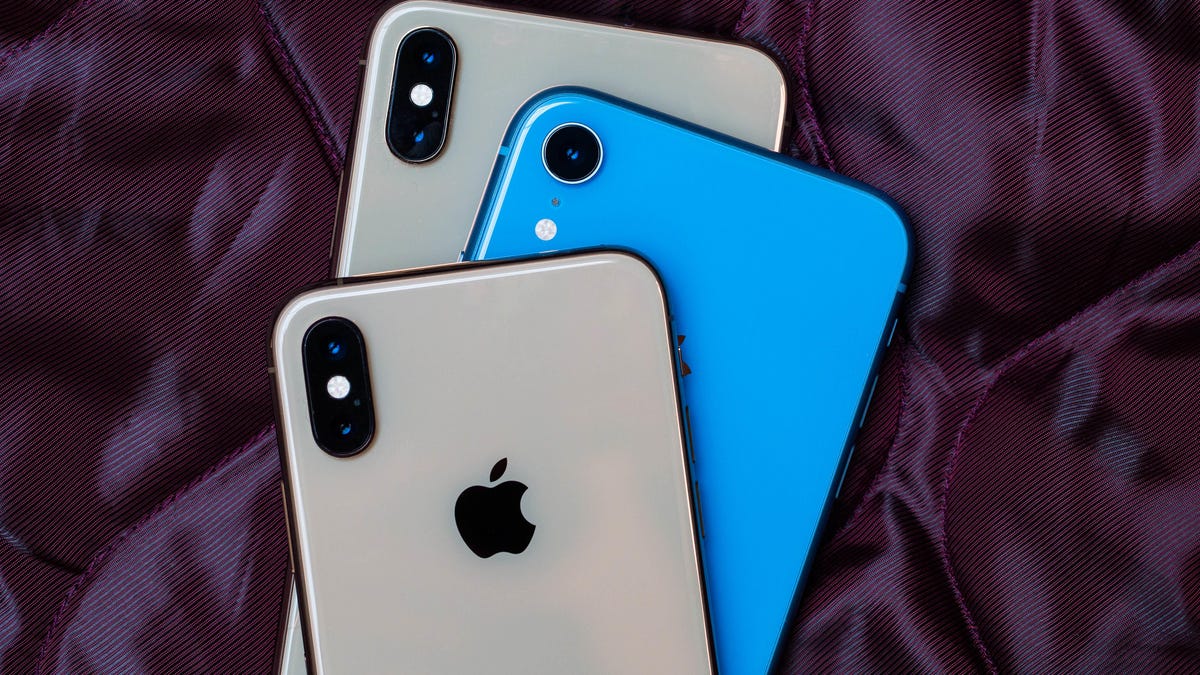Three iPhones will have 5G in 2020, analyst predicts
It looks like Apple's acquisition of Intel's modem business may already be making a difference.

Apple's 2018 iPhones include the XR and XS models.
While we're still awaiting official word on the iPhone 11, expected in September of this year, there's already advance word on what to expect from the 2020 edition of the iPhone. And the latest on that is that all three versions of the 2020 iPhone should have 5G capabilities, according to a new report.
Analyst Ming-chi Kuo had earlier predicted that two of the three iPhones that'll be unveiled in 2020 would be 5G-ready. Now, according to a new report obtained by MacRumors, Kuo expects all three phones will support 5G.
Kuo said that having 5G across all three models will help Apple better compete against lower-cost Android phones that have 5G support. All three new models, Kuo said, will likely support both the mmWave and sub-6GHz versions of 5G, according to the MacRumors report.
That's a big deal. With superfast, low-latency 5G networks just starting to go into service, the pressure will be on Apple to keep pace with other phone makers, including Samsung and LG , that have already brought their first 5G devices onto the market. At the moment, there are only a handful of markets offering only limited 5G coverage, but the new networks will become more and more widespread as 2020 unfolds.
The expectation has always been that Apple wouldn't have a 5G iPhone for this year's iPhone 11 cycle, having been stymied by a dispute with Qualcomm that kept it a step or two behind. But the company took a big stride forward last week when it acquired Intel's smartphone modem business in a $1 billion deal.
Kuo noted that the acquisition should give Apple more resources for developing 5G iPhones. Even so, the 2020 iPhones will likely use modem chips from Qualcomm, with Apple's own modem chips not appearing in the phones till 2021, according to MacRumors.
Prices for 5G Android smartphones, Kuo wrote, will decline to prices from $249 to $349 in the second half of 2020, and that the phones at the price will support only sub-6GHz capabilities.
"But the key is that consumers will think that 5G is the necessary function in 2H20," he wrote, according to the MacRumors report. "Therefore, iPhone models which will be sold at higher prices have to support 5G for winning more subsidies from mobile operators and consumers' purchase intention."
Sub-6GHz 5G networks aren't as fast as those using mmWave technology, but the signals travel farther and can penetrate barriers such as walls and glass that stop short-range mmWave signals.
Neither Apple nor Kuo, through his firm TF International Securities, responded immediately to a request for comment.
Originally published at 2 p.m. PT.
Update, 2:34 p.m.: Adds background on Apple and 5G, and more details from Kuo's report.

